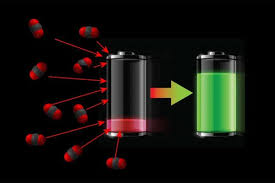
Breaking News
 Networks Versus Hierarchies in Minneapolis' Struggle Against ICE
Networks Versus Hierarchies in Minneapolis' Struggle Against ICE
 Billionaire Reid Hoffman, Who Bankrolled the E. Jean Carroll Lawsuit Against Trump,...
Billionaire Reid Hoffman, Who Bankrolled the E. Jean Carroll Lawsuit Against Trump,...
 Hybrid jet engines work to excel where pure-electric jets fail
Hybrid jet engines work to excel where pure-electric jets fail
 This Could Completely Change the Way You Grade
This Could Completely Change the Way You Grade
Top Tech News
 Critical Linux Warning: 800,000 Devices Are EXPOSED
Critical Linux Warning: 800,000 Devices Are EXPOSED
 'Brave New World': IVF Company's Eugenics Tool Lets Couples Pick 'Best' Baby, Di
'Brave New World': IVF Company's Eugenics Tool Lets Couples Pick 'Best' Baby, Di
 The smartphone just fired a warning shot at the camera industry.
The smartphone just fired a warning shot at the camera industry.
 A revolutionary breakthrough in dental science is changing how we fight tooth decay
A revolutionary breakthrough in dental science is changing how we fight tooth decay
 Docan Energy "Panda": 32kWh for $2,530!
Docan Energy "Panda": 32kWh for $2,530!
 Rugged phone with multi-day battery life doubles as a 1080p projector
Rugged phone with multi-day battery life doubles as a 1080p projector
 4 Sisters Invent Electric Tractor with Mom and Dad and it's Selling in 5 Countries
4 Sisters Invent Electric Tractor with Mom and Dad and it's Selling in 5 Countries
 Lab–grown LIFE takes a major step forward – as scientists use AI to create a virus never seen be
Lab–grown LIFE takes a major step forward – as scientists use AI to create a virus never seen be
 New Electric 'Donut Motor' Makes 856 HP but Weighs Just 88 Pounds
New Electric 'Donut Motor' Makes 856 HP but Weighs Just 88 Pounds
 Donut Lab Says It Cracked Solid-State Batteries. Experts Have Questions.
Donut Lab Says It Cracked Solid-State Batteries. Experts Have Questions.
First Fully Rechargeable Carbon Dioxide Battery is Seven Times More Efficient Than Lithium Ion

Until now, however, scientists have not been able to develop a fully rechargeable prototype, despite their potential to store more energy.
Researchers at the University of Illinois at Chicago are the first to show that lithium-carbon dioxide batteries can be designed to operate in a fully rechargeable manner, and they have successfully tested a lithium-carbon dioxide battery prototype running up to 500 consecutive cycles of charge/recharge processes.
Their findings are published in the journal Advanced Materials.
"Lithium-carbon dioxide batteries have been attractive for a long time, but in practice, we have been unable to get one that is truly efficient until now," said Amin Salehi-Khojin, associate professor of mechanical and industrial engineering at UIC's College of Engineering.



